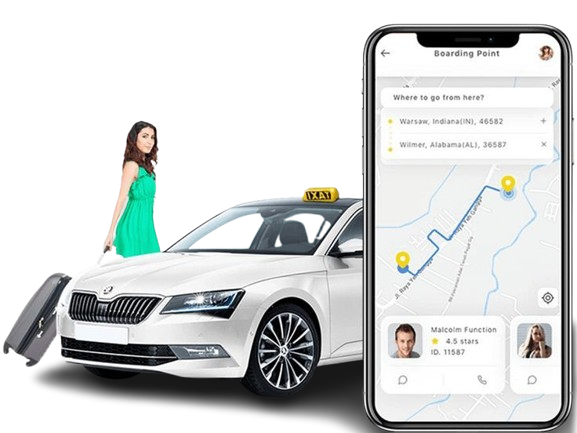The global transportation industry is undergoing a radical transformation. Traditional car ownership is being replaced by more flexible, on-demand options like car sharing. One of the most prominent players in this industry is Turo, which has inspired a wave of innovative entrepreneurs to build their own Turo Clone apps. With the growing demand for sustainable and cost-effective travel solutions, launching a car sharing business with a Turo Clone app can be a highly lucrative venture.
Why Launch a Car Sharing Business Now?
With rising urbanization, traffic congestion, and increased environmental awareness, consumers are shifting away from car ownership. They prefer the freedom of using a vehicle when needed without the burden of maintenance, insurance, and parking. This behavior presents a massive opportunity for startups and established businesses alike to tap into the car sharing model through a well-developed ride sharing app.
The demand is there. What you need is a robust platform that can meet it.
Understanding the Turo Clone Model
A Turo Clone app is a white-label solution that replicates the successful features of the Turo platform. These include:
- Vehicle Listings by Owners
- User Profiles and Verification
- Integrated Payment Gateway
- Geo-Location and Mapping Services
- Rating and Review System
- In-app Messaging
This framework enables entrepreneurs to connect car owners with renters in a peer-to-peer ecosystem.
Core Features You Must Include in Your Turo Clone
To ensure your car sharing business thrives, the Turo Clone you develop must come equipped with powerful, user-friendly features:
1. Multi-Vehicle Listings
Allow users to list various types of vehicles — from sedans and SUVs to luxury cars — giving renters a wide range of options.
2. Real-Time GPS Tracking
Implement GPS and location-based services so users can locate vehicles quickly and plan routes effectively.
3. Secure In-App Payments
Integrate payment gateways like Stripe or PayPal for secure, instant transactions.
4. User Authentication & KYC
Build trust with verified user profiles. Include KYC (Know Your Customer) verification for both owners and renters.
5. Rental Scheduling & Calendar Management
Provide flexible scheduling tools for users to book and manage rentals easily.
6. Push Notifications
Keep users updated with rental confirmations, payment alerts, and promotional messages.
Ride Sharing App Development: Technical Stack
Creating a seamless, scalable ride sharing app development process involves choosing the right tech stack:
- Frontend: React Native / Flutter for cross-platform compatibility
- Backend: Node.js / Django for robust server-side logic
- Database: MongoDB / PostgreSQL
- Cloud Services: AWS / Google Cloud Platform
- Payment Integration: Stripe / Razorpay
- Maps & Navigation: Google Maps API / Mapbox
Your development partner must ensure the app is responsive, secure, and easily maintainable.
Step-by-Step Guide to Launching Your Car Sharing Business
1. Conduct Market Research
Start by identifying your target market, competitors, and demand. Focus on urban areas, airports, or college towns where car sharing is most in demand.
2. Choose the Right Business Model
Decide between peer-to-peer (like Turo) or a fleet-based model. Peer-to-peer models have lower initial costs but require strong trust mechanisms.
3. Hire a Skilled Development Team
Partner with an experienced ride sharing app development company that can deliver a custom or readymade Turo Clone.
4. Ensure Legal Compliance
Secure licenses, insurance policies, and user agreements in compliance with local transport and rental laws.
5. Build and Test Your App
Focus on user experience, speed, and security. Run extensive beta testing before going live.
6. Launch and Promote
Use digital marketing, influencer campaigns, and referral programs to attract both renters and car owners.
Revenue Streams from a Turo Clone App
1. Commission Per Rental
Charge a commission from car owners for each successful booking.
2. Premium Subscriptions
Offer featured listings, insurance packages, or early access to high-demand vehicles.
3. In-App Advertisements
Allow ads from vehicle service providers, insurance companies, or travel agencies.
4. Delivery Fees
Charge for delivering the car to the renter’s location.
Marketing Tips to Boost Your Turo Clone Business
- SEO-Optimized Website & Blog: Use keywords like Turo Clone and ride sharing app development to attract organic traffic.
- Social Proof: Encourage users to share their experiences via reviews and testimonials.
- Referral Campaigns: Give discounts or credits to users who invite friends.
- Influencer Collaborations: Partner with travel and lifestyle influencers to showcase your app.
Common Mistakes to Avoid
- Skipping MVP Stage: Launching a full app without testing a Minimum Viable Product (MVP) could be costly.
- Ignoring User Feedback: Consistently gather and act on user feedback to improve your service.
- Poor Customer Support: Offer 24/7 support to resolve issues quickly and build trust.
Why You Need a Custom Ride Sharing App Development Partner
A professional development company with expertise in ride sharing app development can deliver a reliable, scalable solution tailored to your business goals. Avoid cookie-cutter templates and opt for a tech partner that understands the intricacies of mobility solutions.
Conclusion
Starting a car-sharing business with a Turo Clone is not just a trend—it’s a strategic move toward the future of urban mobility. With the right features, tech stack, and marketing plan, you can build a sustainable and profitable business that meets the demands of the modern traveler.
If you’re serious about capitalizing on the booming car sharing industry, now is the time to act. Invest in a robust Turo Clone app and watch your business drive into the fast lane of success.
 :
https://www.pinterest.com/jessyrayder/
:
https://www.pinterest.com/jessyrayder/

